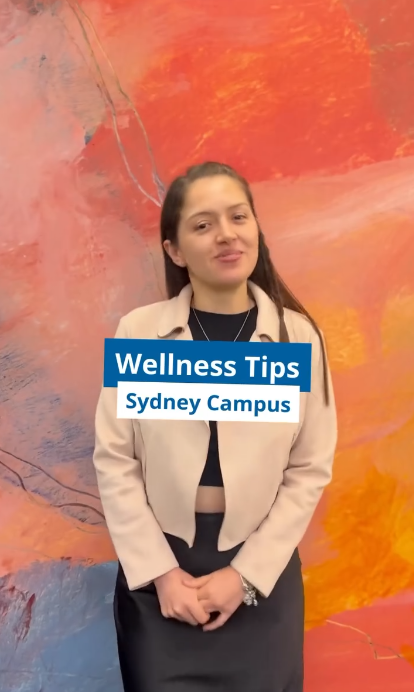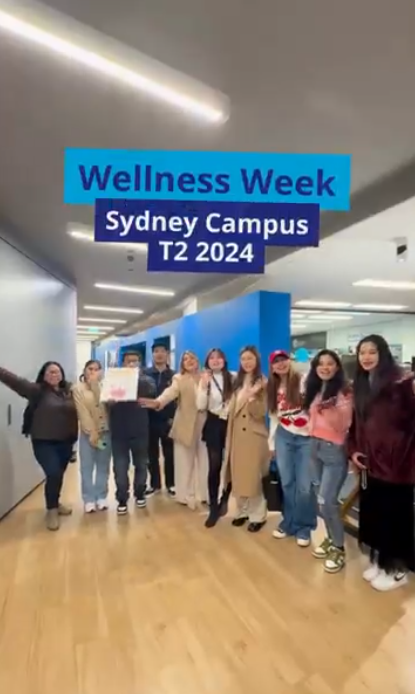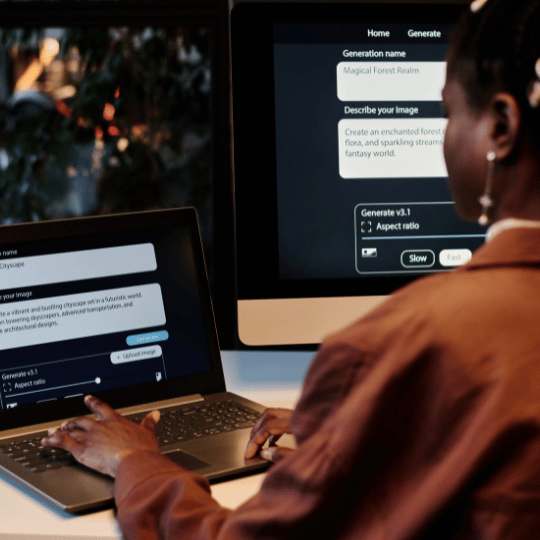How to balance study and work in Australia
Many students in Australia choose to work while studying to gain valuable work experience and support themselves financially. As an international student, you can work up to 48 hours per fortnight during your school term and unlimited hours during the school break. These regulations are designed to help you effectively balance your study and work commitments.
In this blog, we will explain the top 5 ways to balance study and work.

1. Develop your time management skills
Balancing classes, independent study, work and other personal responsibilities requires a clear schedule and a commitment to follow it. Many education providers offer online or evening classes that can fit around your work schedule or you can take fewer subjects in a semester to lessen the workload.
To manage your time effectively, there are several strategies you can adopt such as:
- Using a digital calendar like Google Calendar or Apple Calendar to help you visualise your week, stay organised and avoid conflicts. Mark your class times, study deadlines and work shifts. Start your assignments early in case unplanned events happen.
- Using time management apps such as Todoist, Clockify and Notion to help you plan, keep track and manage tasks.
- Identifying and prioritising tasks each week or month based on urgency and importance. You could use the Eisenhower Matrix or the Pomodoro Technique to help you. There will be times when you may need to re-order your priorities and tasks. Write down what is compulsory and what is ‘nice to have.’
- Setting weekly or monthly goals (e.g. write 500 words of a business essay, create 2 infographics for a group presentation). Break down larger assignments into smaller tasks and schedule them throughout the week or month.
- Using time blocking. Break your day or week into chunks dedicated to a specific task (e.g. Thursday 10am-11pm: create 5 slides for a group presentation.)
- Studying smarter, not harder by using study apps. There are a wide variety of apps like ChatGPT and Grammarly that can help you complete tasks such as research, essay writing and presentations more efficiently. Be sure to check your university’s policies on using AI.
- Combining tasks to save time. For example, you could read journal articles during your work lunch break or listen to an online lecture on your way to or back from work.

Setting clear priorities and sticking to a consistent weekly schedule can significantly improve time management and reduce the stress of unexpected changes. It's also important to block out at least one day for rest or personal time, as taking a break helps you recharge both mentally and physically. Additionally, learning to say ‘no’ during busy periods, allows you to protect your time and avoid taking on too many commitments.
~ Steven, MBA (specialisation: Digital Management), Indonesia
Ana, Bachelor of Business – Marketing, Colombia, shares her strategies for managing a busy schedule.
2. Choose flexible jobs that fit your schedule
During your job search, look for roles that offer flexible hours or casual shifts (so you can balance your work and study commitments) such as:
Cafe or restaurant staff
Customer service agent
On-campus jobs (e.g. library or administrative assistant)
Tutoring
Freelancing or
Food delivery driver.
During your job interview, be upfront with the employer about your study schedule, but also reassure them that you can balance your priorities. Many Australian employers are understanding, especially in industries that regularly hire international students.
3. Communicate with your employer
Open communication with your employer is important to keeping a balance. If you’re struggling to manage work and study, you need to tell them.
Inform them about your upcoming study schedule and your availability so that you can discuss possible ways to manage your workload. Provide plenty of notice if you need to take time off or move your work shifts. For example, when exam periods or major assignment deadlines are coming up, you could take study leave (if it’s included in your contract), negotiate reduced hours for a few days or increase the number of days you work from home so that you can use your commute times for studying instead.
Giving transparency about your study commitments will help you manage your work’s expectations, provide you the time and space to finish your projects at a high standard or study for exams and reduce the level of stress.
4. Use campus and community support
Australian universities and colleges have dedicated services and resources to support international students throughout their academic studies. Services can include:
Academic support – writing workshops, one-on-one tutoring, time management seminars.
Career services – help with resume writing, job interview skills, career paths and networking.
University student clubs and societies – meet new people, feel connected and learn new skills.
Counselling and mental health services – discuss personal challenges and receive help to manage them.
By asking and receiving help, you will be developing the knowledge, skills and confidence to become more efficient and productive.
Kaplan Business School runs a week of health and wellbeing events called Wellness Week. There are a wide range of events for students to develop physical, emotional, intellectual, social, spiritual, occupational, financial and environmental wellness.
5. Take care of your wellbeing
To be able to balance work and study you need to look after your physical and mental health. Ways for staying well include:
Getting enough sleep – aim for 7-8 hours each night.
Exercising regularly – even a short walk can boost your energy and mood.
Eating nutritious meals – your body and brain need healthy foods to perform well.
Taking regular breaks – schedule relaxation times between study periods to recharge and manage stress.
Spending more time outdoors and less time on digital screens.
Making time for friends and leisure even if it’s only 1 or 2 hours.
If you ever feel overwhelmed, take a break or speak to someone who you trust.
Joyanne, an MBA student at KBS, shares her experience speaking with a Student Counsellor.
Click the edit button to change this HTML
Balancing study and work as an international student in Australia is both achievable and incredibly rewarding. It teaches independence, builds time management skills, and can even enhance your employability after graduation. It also requires careful planning, open communication and a strong focus on self-care.
At KBS, our Student Support team will help you achieve your study and career goals. Download our free eBook about studying in Australia for everything you need to know about living and studying here.












